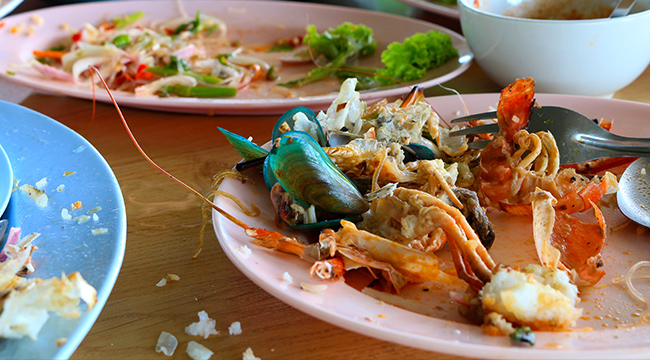
Texas is like a fruitcake — there are some super desirable parts, some that are utterly disgusting, and some that you can palate, but wouldn’t miss if they disappeared. Still, taken as a whole, it’s pretty great.
Among these seemingly disparate parts, Austin is a polarizing city — it’s either too weird or just right, depending on who you ask — but one thing is for sure: it’s one of the most progressive cities in the state. This is only exemplified by the new law that bans Austin restaurants from throwing away leftover food at the end of the night, ordering them to either compost it or donate unconsumed food to the hungry.
The ban — called a “food diversion program” — applies to all businesses with food permits and doesn’t just stop at recycling food. Employees also have to go through training about handling the waste, because improperly handled food is no good to anyone, and compost can be highly flammable if not treated right. As the state’s capital, the city is setting an example for the rest of Texas restaurant industry after a 2015 study showed that 37 percent of landfill waste is organic and could have been turned into compost.
Darby Hoover, Natural Resources Defense Council senior resource specialist, explained that food waste not only adds “organic materials to landfills, (where they generate methane, a powerful global warming pollutant), but we also waste all the water, land, energy, money, labor, and other resources that go into growing, processing, distributing and storing that food.”
Austin is not the first city to enact such a law — it trails behind San Francisco, Seattle, and New York City — but this is a big win for sustainability in Texas. The compost part of the story is pretty cool, but tbh, the coolest part is getting to feed people who need a good meal. Saving money is dope but saving lives trumps that every time.






